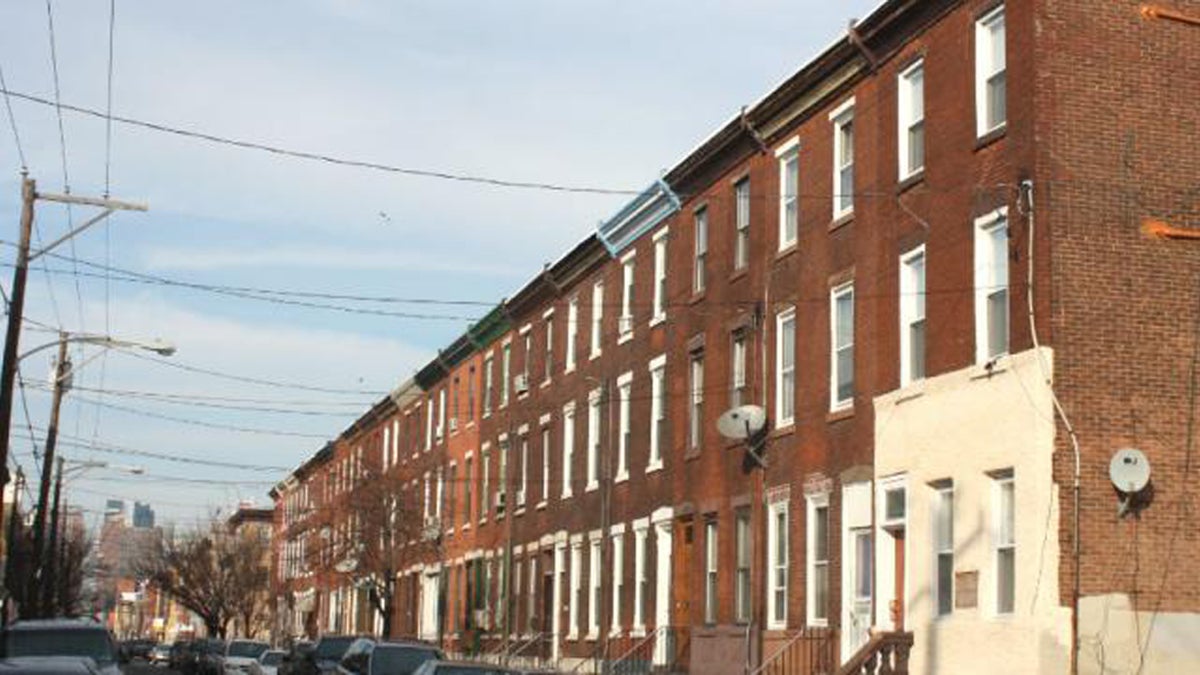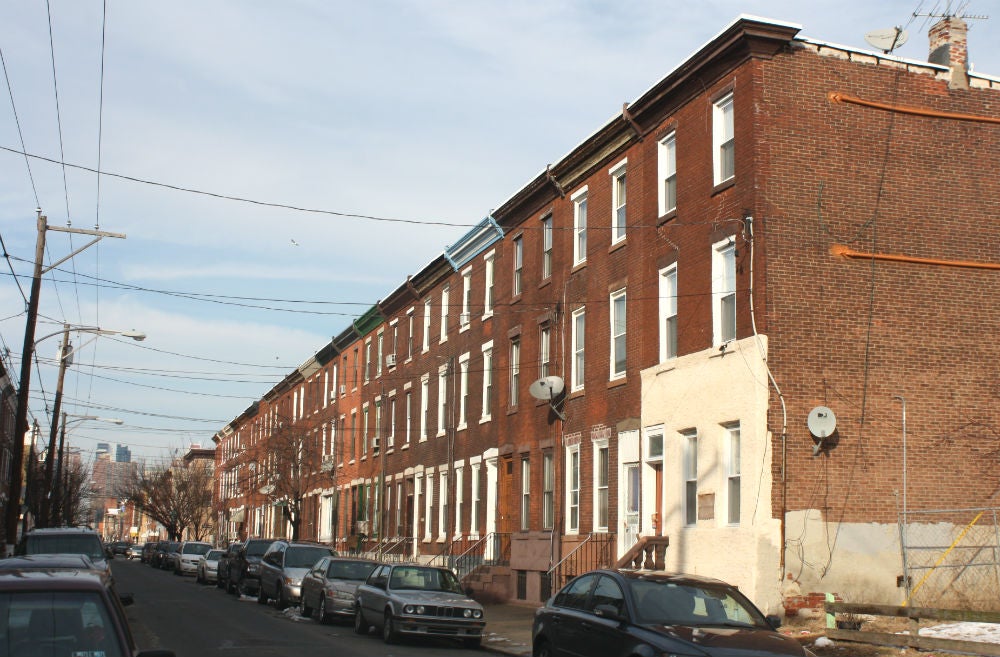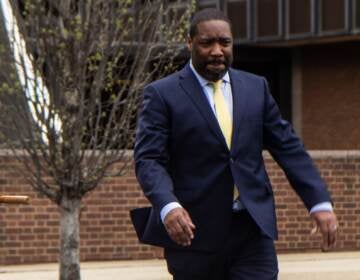Council bills focus on tax relief for homeowners, low-income workers

(PlanPhilly Image)
Councilman Kenyatta Johnson introduced a bill on Thursday that would freeze indefinitely the amount of property taxes owed by certain homeowners in Philadelphia.
The bill would amend the Longtime Owner Occupants Program (LOOP), which was enacted alongside the city’s recent overhaul of property assessments known as the Actual Value Initiative. AVI lowered property-tax bills in some neighborhoods, but in others, homeowners saw their taxes spike dramatically.
Essentially, LOOP prevented property-tax bills from increasing by more than 300 percent for qualified homeowners. Under LOOP, tax exemptions were granted homeowners who had lived in their homes for ten years or more, who earned no more than 150 percent of Area Median Income, and whose property taxes were set to increase at least threefold under AVI. The exemptions were to expire at the end of ten years.
Under Councilman Johnson’s bill, the ten-year expiration date would be removed, and the LOOP exemptions would expire only when the homeowner sells the property or moves out.
“This bill is a direct response to a great deal of concern I have heard from people in my district,” said Johnson, who represents the 2nd District in South and Southwest Philadelphia, in a prepared statement. “They are thankful to have been accepted into the LOOP program. However, they are concerned that after 10 years they may be forced to leave their property, whether they want to or not.”
Currently, the cost of the LOOP program is capped at $20 million, and Councilman Johnson said that removing the ten-year expiration is not likely to significantly increase the program’s cost. As eligible homeowners sell their properties, move out, or pass away in the next ten years, the cost of the program will decrease dramatically, he said.
Last week, Council President Darrell Clarke introduced a separate bill co-sponsored by Council members Bill Greenlee and Wilson Goode, Jr., that would lower the overall tax burden on low-income Philadelphia residents. The bill, which Council President Clarke referred to as the Income Inequality Initiative, would give a half-percent (0.5%) discount on the city’s wage tax to low-income workers. The program would use the low-income eligibility standards of the state Tax Forgiveness program.
Both bills have yet to be scheduled for a committee hearing.
Click through for more stories on PlanPhilly.
WHYY is your source for fact-based, in-depth journalism and information. As a nonprofit organization, we rely on financial support from readers like you. Please give today.
Council bills focus on tax relief for homeowners, low-income workers

Councilman Kenyatta Johnson introduced a bill on Thursday that would freeze indefinitely the amount of property taxes owed by certain homeowners in Philadelphia.
The bill would amend the Longtime Owner Occupants Program (LOOP), which was enacted alongside the city’s recent overhaul of property assessments known as the Actual Value Initiative. AVI lowered property-tax bills in some neighborhoods, but in others, homeowners saw their taxes spike dramatically.
Essentially, LOOP prevented property-tax bills from increasing by more than 300 percent for qualified homeowners. Under LOOP, tax exemptions were granted homeowners who had lived in their homes for ten years or more, who earned no more than 150 percent of Area Median Income, and whose property taxes were set to increase at least threefold under AVI. The exemptions were to expire at the end of ten years.
Under Councilman Johnson’s bill, the ten-year expiration date would be removed, and the LOOP exemptions would expire only when the homeowner sells the property or moves out.
“This bill is a direct response to a great deal of concern I have heard from people in my district,” said Johnson, who represents the 2nd District in South and Southwest Philadelphia, in a prepared statement. “They are thankful to have been accepted into the LOOP program. However, they are concerned that after 10 years they may be forced to leave their property, whether they want to or not.”
Currently, the cost of the LOOP program is capped at $20 million, and Councilman Johnson said that removing the ten-year expiration is not likely to significantly increase the program’s cost. As eligible homeowners sell their properties, move out, or pass away in the next ten years, the cost of the program will decrease dramatically, he said.
Last week, Council President Darrell Clarke introduced a separate bill co-sponsored by Council members Bill Greenlee and Wilson Goode, Jr., that would lower the overall tax burden on low-income Philadelphia residents. The bill, which Council President Clarke referred to as the Income Inequality Initiative, would give a half-percent (0.5%) discount on the city’s wage tax to low-income workers. The program would use the low-income eligibility standards of the state Tax Forgiveness program.
Both bills have yet to be scheduled for a committee hearing.
WHYY is your source for fact-based, in-depth journalism and information. As a nonprofit organization, we rely on financial support from readers like you. Please give today.





